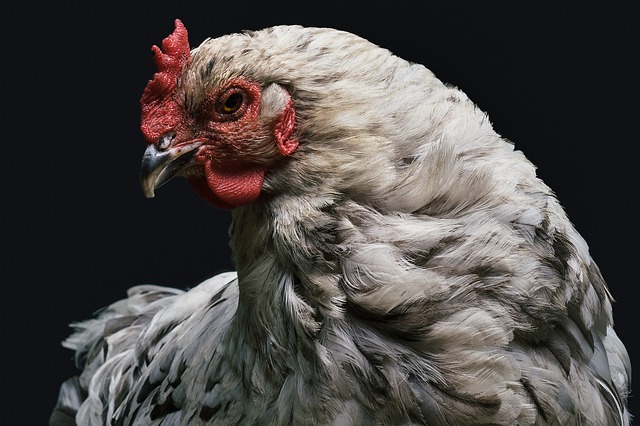January 2, 2018
Israel-based biotech startup SuperMeat, a company dedicated to developing cultured meats in a laboratory setting, has raised a Seed round of $3 million backed by U.S.-based venture capital fund New Crop Capital, mission-focused venture capital firm Stray Dog Capital, and European poultry producer PHW.
Founded in Tel Aviv in 2015, SuperMeat produces what it calls “clean meat” by propagating cells extracted from a chicken, creating a system that eliminates breeding, hatching, raising, and slaughtering poultry, and also eliminating damage to the environment and food-borne illnesses.
In 2016 the company raised $230,000 through a crowdfunding campaign on Indiegogo, making this funding the first capital raised by the startup through an equity-based deal.
Once a topic for science fiction, the possibility of creating lab-generated meat on a commercial scale is becoming more and more plausible, while the environmental and social benefits of such a system are catching the attention of both consumers and high-profile investors.
In August of 2017, Memphis Meats, a San Francisco-based startup that is developing methods for growing clean meat from animal cells, announced it had raised a $17 million series A led by leading venture capital firm DFI. The round also included a long list of notable investors such as Cargill, Bill Gates, Richard Branson, New Crop Capital, SOSV, Fifty Years, Atomico, KBW Ventures, Inevitable Ventures, Kimbal Musk, Suzy and Jack Welch, Kyle Vogt, and multiple research institutions.
And in July 2016, New Wave Foods, a company using red algae and other plant-based ingredients to develop lab-created shrimp and fish alternatives, announced the opening of its seed round anchored by early stage investments from Efficient Capital and venture capital firm New Crop Capital.
Sustainability
The deepening of the connection between consumers and their food supply chains, along with a rising popularity of veganism, concerns over animal rights, and awareness around the hormones, antibiotic usage, and unsustainability inherent in the global livestock industry, have pushed many people to look toward alternative ways to get protein into their diet.
Meat production uses one third of the world’s fresh water and land surface, while also generating one fifth of all greenhouses gas emission. And as evidence mounts that the global animal protein production system is not sustainable, plant-based meat analog and lab-grown meat producers are both increasingly coming into the crosshairs of mission-driven and forward thinking investors.
Both plant-based and lab-grown meat startups are aiming for the same target – to carve out a portion of the meat market (worth about $200 billion in the U.S.) such as plant-based milks did in the dairy aisle.
“I want to be able to say you don’t have to make a choice in what you’re eating,” Memphis CEO and Co-Founder Uma Valeti told Fortune in an December interview, “but you can make a choice on the process of how it goes to the table.”
Clean meat production fits well into this narrative as a production system that could comparatively reduce greenhouse gas emissions by 98 percent, reduce land exploitation by 99 percent, and would reduce water usage by 96 percent compared to traditional livestock production, according to research conducted by Oxford and Amsterdam Universities, stated the company.
Even top players in the meat industry are seeing the writing on the wall and are diversifying capital into alternative protein businesses.
SuperMeat CEO and Co-Founder Ido Savir told Tech Crunch that the inclusion of PHW in the company’s seed round is indicative of the momentum behind the technology. The same can be said for Tyson – a name synonymous with the meat industry – which took part in a $55 million round raised by plant-based meat alternative producer Beyond Meat in December 2017.
“We at PHW have time and again left the beaten path in conducting our business. This approach not only facilitates the development of best-in-class animal welfare concepts in our core poultry business, but will also lead to the strengthening of our vegan product portfolio, confirming our leading role in the global consumer trend towards a cleaner, more protein-rich diet,” said PHW-Cruppe’s CEO Peter Wesjohann.
Timeline
SuperMeat states that with the backing of this new funding, it is aiming to have its “clean chicken’ on the market within three years at a comparable price point to conventional chicken. However, this initial timeline is for chicken that can be used in processed foods, and not whole cuts such as chicken breasts, according to TechCrunch.
Multiple challenges remain for the commercial production of lab-produced meats in regard to the development of taste and texture, and the build out of processes that would enable high-volume output. But, the technology is full of promise at a time when the FAO of the UN expects global demand for meat to double by 2050.
“We’re proud that SuperMeat is at the forefront of the rapidly-evolving clean meat industry,” said Savir. “Our team is comprised of a diverse group of top-tier scientists, food engineers and chefs, working together with the best production experts from the pharmaceutical industry to create a new generation of meat products that are sustainable, cost-efficient, animal-friendly, and of course – delicious.”
-Lynda Kiernan

Let GAI News inform your engagement in the agriculture sector.
GAI News provides crucial and timely news and insight to help you stay ahead of critical agricultural trends through free delivery of two weekly newsletters, Ag Investing Weekly and AgTech Intel.




